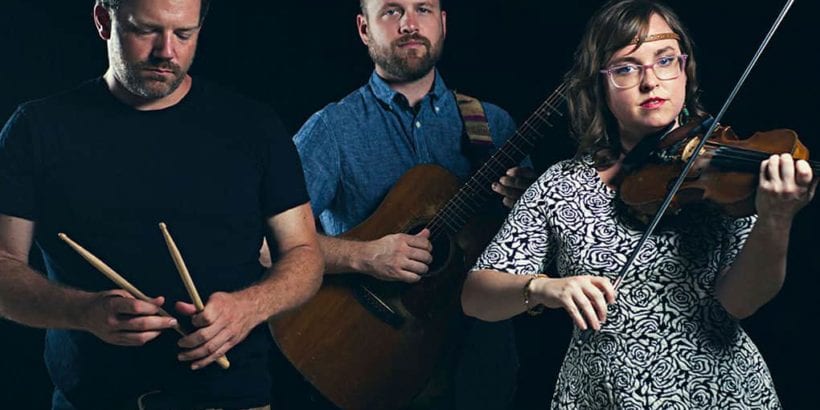
The Jon Stickley Trio: Evolution and Revolution in Bluegrass
Take a roux of bluegrass, stir in equal parts jazz, rock, hip-hop, and punk, sprinkle it liberally with musical innovation and a pinch of genius, and you’ve got the brew that is the Jon Stickley Trio – a band that gleefully destroys labels. The trio fuses the lightning-fast, flatpicking guitar skills of Jon Stickley, with the fiery, symphonic talents of Lyndsay Pruett on violin, and the deep rhythmic grooves of Patrick Armitage on drums to create a dazzling soundscape.
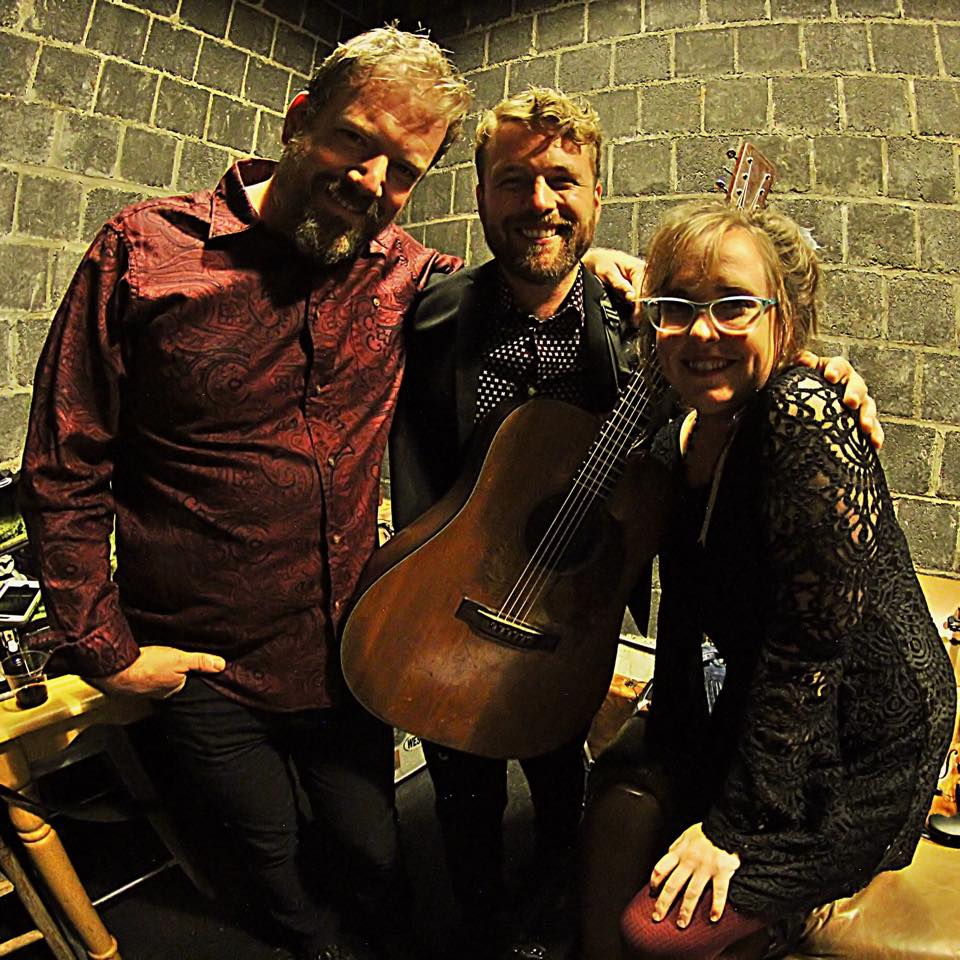
Currently in the midst of a grueling touring schedule crisscrossing the country in support of their latest album, Maybe Believe, the band has been confounding critics and audiences for the better part of five years. Born by chance in the creative recesses of Ashville NC, the trio is part of a genre-bending class of innovators who play (near as public relations types can figure it) progressive bluegrass or newgrass. Think Railroad Earth, Yonder Mountain String Band, and Greensky Bluegrass.
The band began as a side project for Stickley, who cut his musical teeth with several Asheville bluegrass bands before branching out on his own. He recruited Pruett to play fiddle for what was originally going to be a more traditional bluegrass group. Happenstance and Pruett brought Armitage into the picture when the group needed a drummer to play with them on several gigs. The end result was a chemistry that unites them in their explorations of the musical landscape, which also include gypsy jazz, rock and even some trippy electronic dance beats.
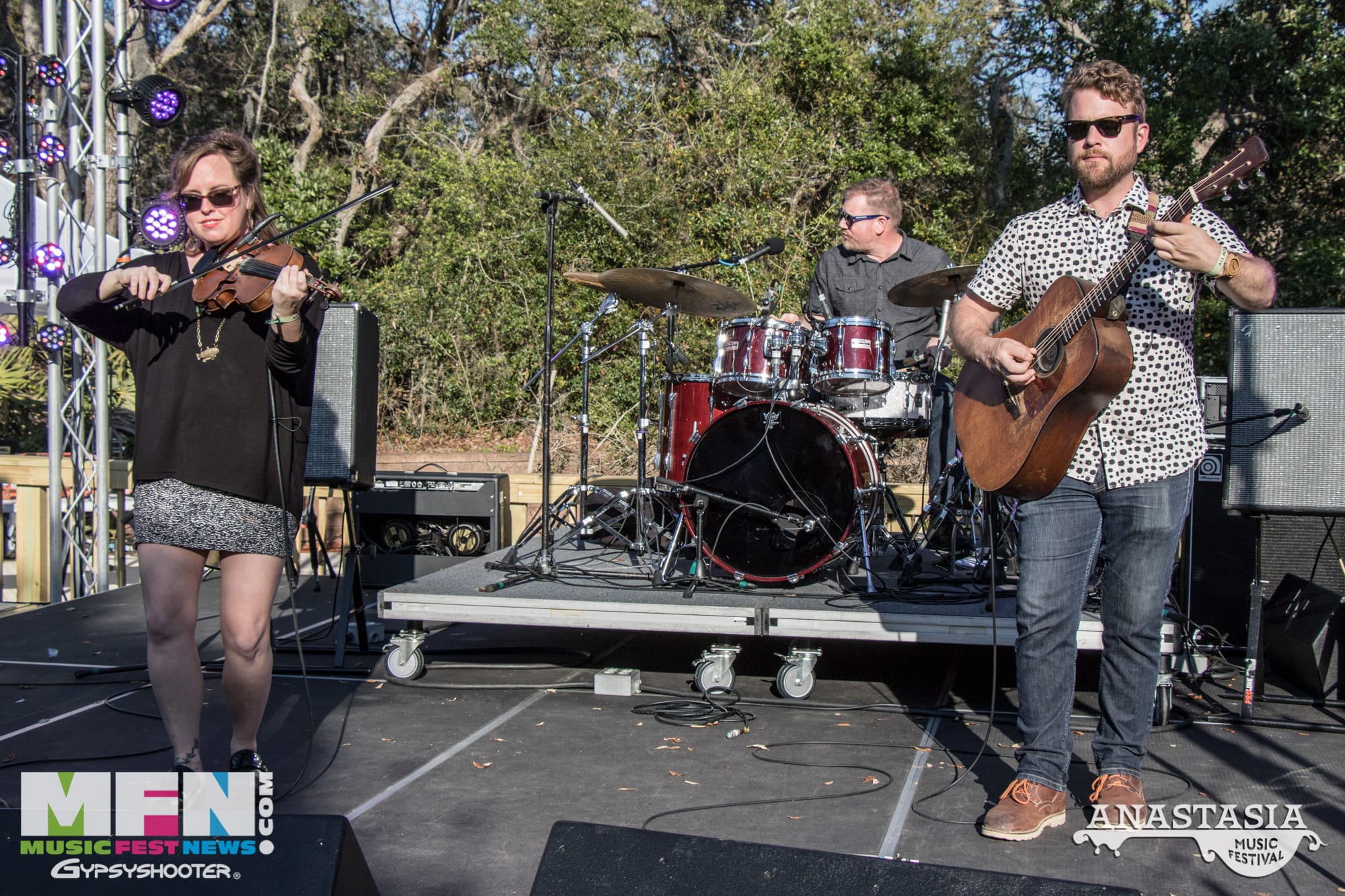
I had the opportunity to catch up with the trio at The Point Ybel Brewing Company in Fort Myers on November 16, where they played several rollicking sets, blowing the minds of fans and the uninitiated alike. Before the show, we talked about their journey, their sound, their influences, and life in general.
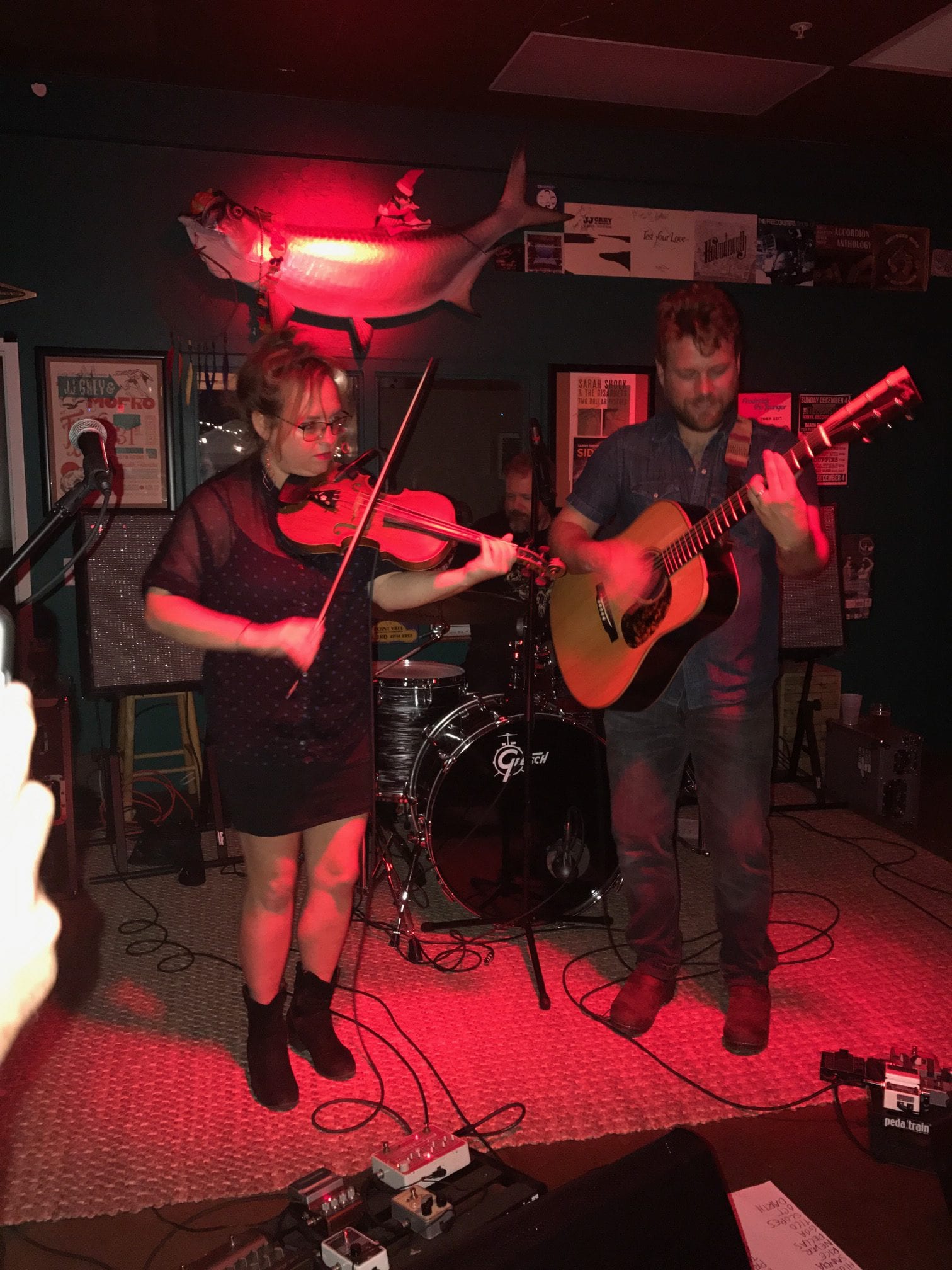
MFN: First of all, thank you so much for sitting down to talk with me. I am so excited about tonight’s show and am thrilled you’ve come back to this area to play. I have been trying to wrap my head around what you do, and I know how your press describes you – progressive bluegrass, newgrass, etc. But how do you describe yourselves?
Jon: A lot of the time we also go for the easy answer and say things like progressive bluegrass with a little bit of a jazz edge. But the music has become a lot more than that. It’s distinctly the Jon Stickley Trio. It’s just a unique sound that has come distinctly from our unique backgrounds coming together to create something extremely original.
Patrick: I really think about it the same way Jon just said it. The long form is, and I wish there was a way to condense it, but the long form is Jon is a great flat-picking bluegrass guitar player who also grew up listening to punk rock and was a drummer in a band. And Lyndsay is classically trained, and her family comes from bluegrass and gypsy jazz and all that. And my background is rock and hip hop and R&B. And we just take all that and smoosh it together. But somehow it has come out not sounding clichéd. It comes out sounding like its own thing.
Lyndsay: It’s kind of a mystery even to me how the songs even came to be what they are. It seems like it just happens. So, sometimes it’s just better to let other people listen to it and put the words on it. There is one term that I feel pretty close to, which is prog-grass. It’s that prog element of the highly arranged instrumental music.
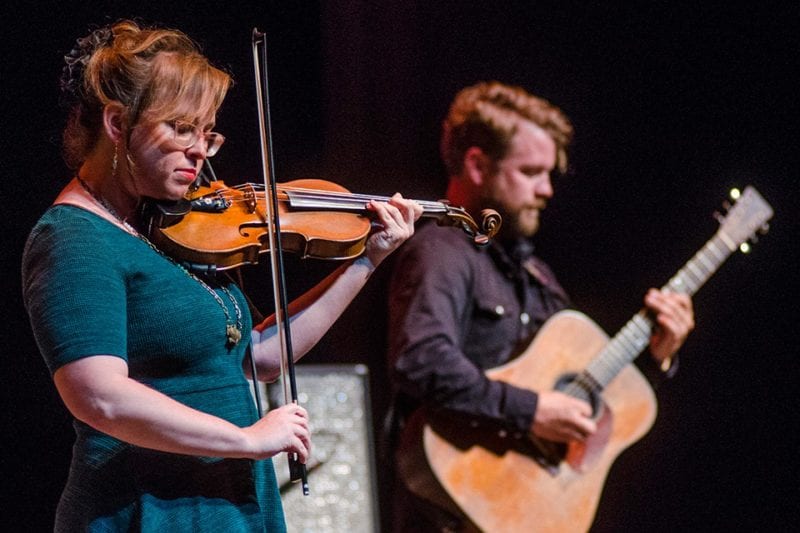
MFN: Your influences run the gambit of genres, but bluegrass is the foundation of what you do. Is there one overriding moment that you can pinpoint in your individual histories or the band’s history that you chose bluegrass as the foundation for your music?
Jon: I joined a bluegrass band in college and fell in love with the style of music. So much so that that I was obsessed with it and wanted it to be the thing that I focused on, and I wanted to be the best at. So bluegrass guitar – that is the foundation that this is built on – is the style of acoustic flatpicking guitar.
One band that had a huge influence on Lyndsay and myself is the David Grisman Quintet. Hearing that and then going down the rabbit hole of bluegrass guitar is what put me on the road to playing gigs and becoming a professional musician. I never took music that seriously until then. I just didn’t see it as a job. I went to school to be a park ranger, and before I went on tour I was going to be a missionary.
Lyndsay: Bela Fleck and The Flecktones was my most favorite band growing up. I was the number one nerd for them. After I graduated from college I got to play with their drummer and got to play in his side project Futureman for few years, which was really cool. But, they have this sound that doesn’t sound like bluegrass at all, but there is this foundation of bluegrass that’s there anyway.
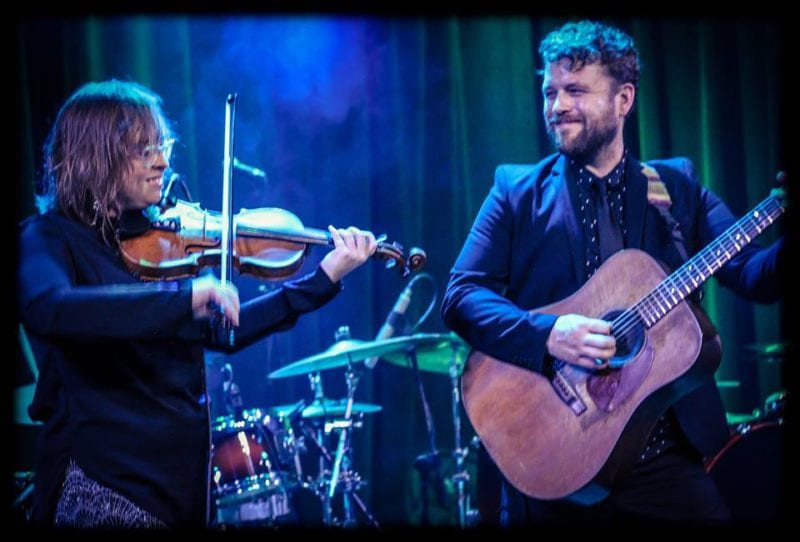
MFN: Digging a little deeper into your musical influences, my ears perked up when I heard punk being played in what you do. Was punk something that influenced all of you?
Jon: For me, for sure. Right now it’s the main thing I’m listening to. I’ve ripped of some things from my favorite punk bands for sure. NOFX and Propaghandi are two of my favorites. But more than the subject matter, the energy and the rebellious nature of our music is one of the more punk elements of it. In a way, our music is bucking a lot of the mainstream traditions. That’s what punk is all about.
Patrick: It is that energy that Jon just said – to just not go along with one demographic or not be completely middle-of-the-road band. I’ve always been interested in bands that push the edge and have a little bit of a rebellious nature. And just doing something a little bit different, or super different, I feel we do that a little bit, especially in this bluegrass scene. We are way left of normal in the world of bluegrass.
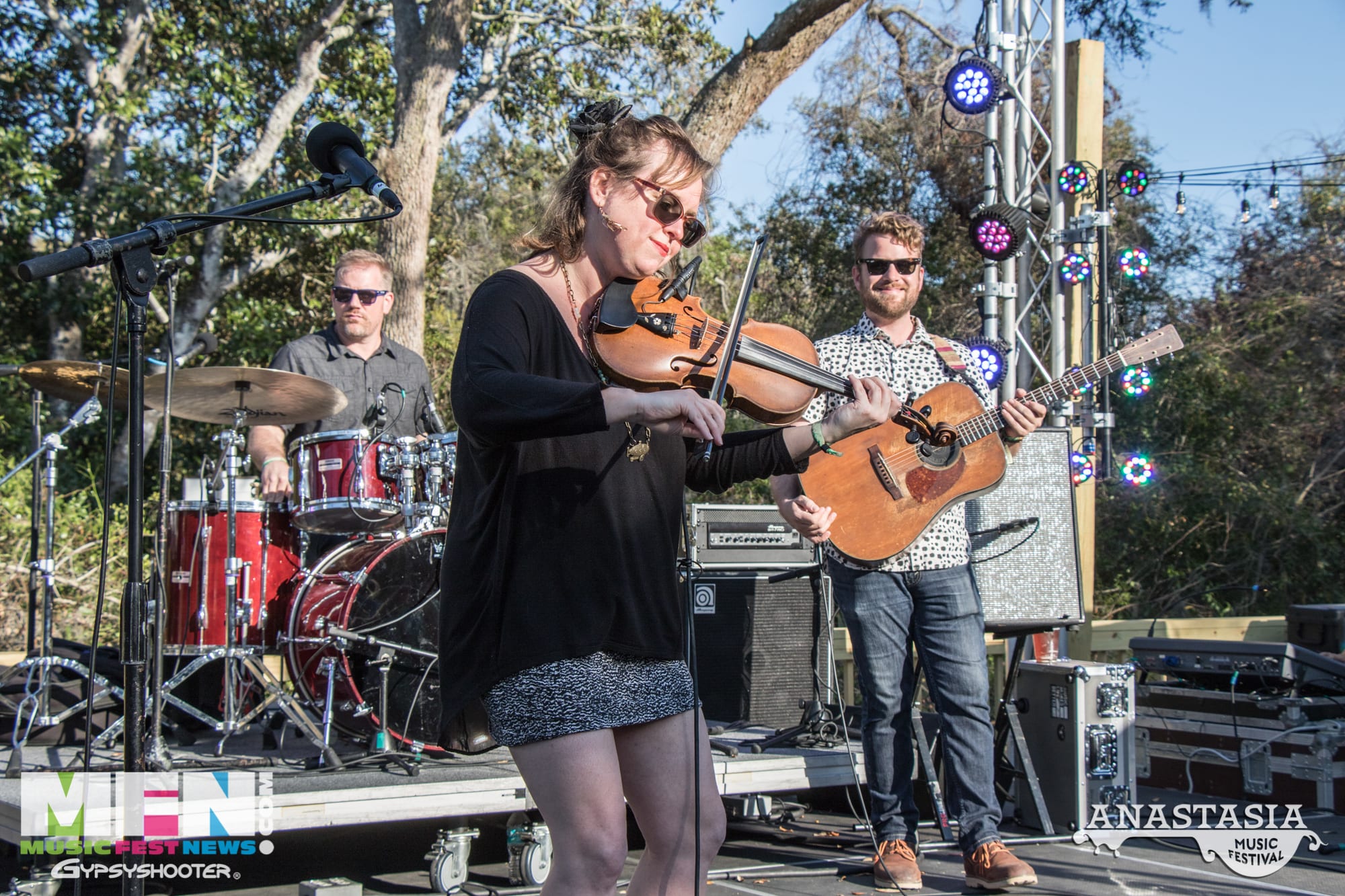
MFN: Patrick, you used to play in a rap group. Tell me about the intersect between hip hop and rap and bluegrass. How does that work?
Patrick: You know, at the end of the day you can put any kind of feel to any kind of music as long as you’re playing in time. Almost before I joined the band and when I came in on my first rehearsal, there was this unity about not playing a bluegrass train beat. So I might do a half-time bluegrass train beat and then that would morph itself into a half-time bluegrass train beat with a little bit of swing on the kick. And that’s kind of what hip hop ends up being.
Lyndsay: We were basically trying to avoid the most obvious drums that you would put on people playing bluegrass, which is that train beat. So to make it more danceable and funky and to take it out of that obvious place, then that puts Patrick in a place where he has to figure out something else to do all the time.
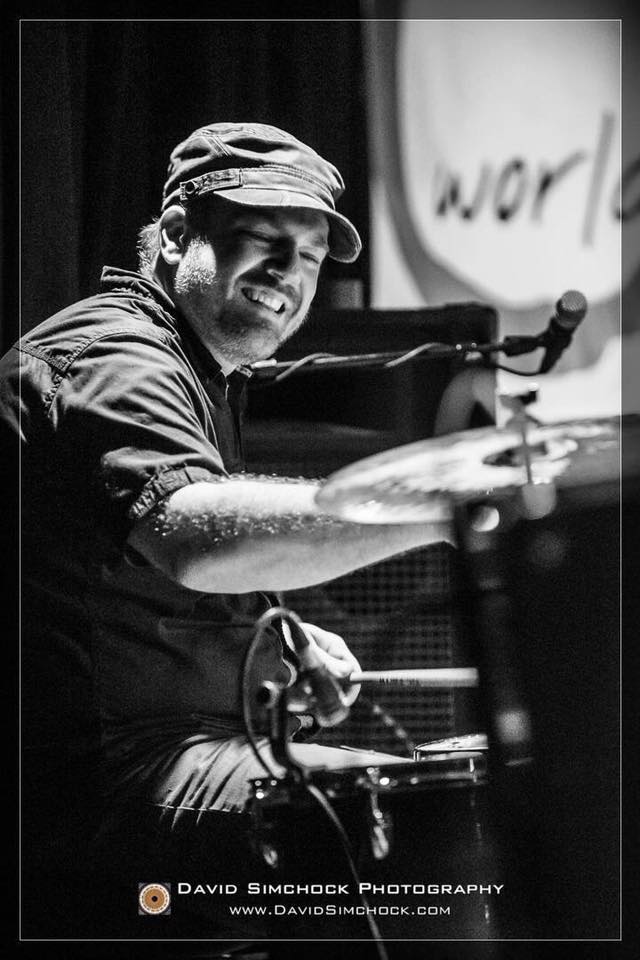 Patrick Armitage
Patrick Armitage
MFN: It seems like people, even those that don’t know what to expect, are pretty receptive to what you do – blown away, in fact. But you must have played some pretty weird places. What’s the weirdest gig you’ve ever played?
Jon: We opened up for Ricky Skaggs once. But everybody was really cool. Everybody liked it.
Lyndsay: We’ve been into a lot of places where we thought that it was just not going to work out, like the Bluegrass Museum in Kentucky. We end up playing in front of traditional bluegrass audiences that we’re always a little apprehensive about doing because we’re afraid that we won’t be received well.
Jon: Traditional bluegrass audiences tend to be a little older. Like really older – in their ’70s.
Patrick: But, in fact, we’ve played our most punk rock-sounding sound like “Darth Radar” for those audiences. And, I mean, it’s heavy, and it’s driving, and we’ll end up getting a standing ovation from that crowd. I think new grass bands and bands like the Flecktones really did pave the way in this world. Because if it was only bluegrass, and here we came in and they hadn’t done that before, then I think people would freak out.
Jon: The younger bands too, like The Punch Brothers, Infamous String Dusters, Greensky Bluegrass, it’s all gone into this new place. There’s this audience that likes crossover.
MFN: When I listen to your music, especially this last album, Maybe Believe, I see it as much as I hear it. It’s as visual as it is sonic. Jon, when you envision the songs, what are you seeing and hearing in your head?
Jon: I probably do have different visual associations with each song. But really, as far as the songs go, the difference between the newest album and anything before that is that I’m hearing the individual players. I’m writing music for us three specifically. That’s new. And the band is executing it in a way that is a really intimate, tight, polished musical representation of that idea.
My songs start as small seeds. It’s a very collaborative effort getting the small seed of a song to the finished product that’s on the record. And even after the record, the songs continue to grow, and every show we make adjustments.
Like we did a lot of different things with tunes at the Hulaween set. We said, lets extend them out, get these kids dancing, keep the jams going. And they all stick, and that’s the way we do those song now.
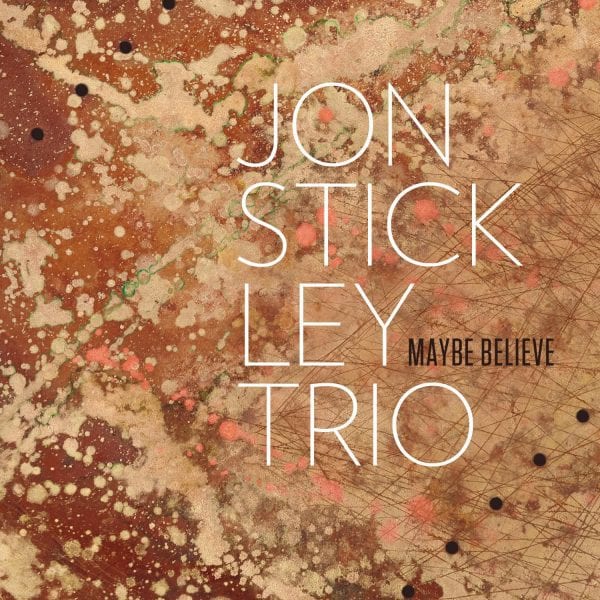
MFN: I had read that you don’t do extended jams, that you pretty much stick to a script. Is that still the case?
Jon: Yeah – as far as gratuitous soloing that goes on and on. We took a pretty traditional approach to our music. It doesn’t have lyrics but it’s going to be the same kind of verse, chorus, verse chorus, bridge, chorus. It’s going to be a song, not just rambling noodling.
Patrick: In that sense we’re not really a jam band. We’re not going to play a ten-minute song where we don’t know where it’s going.
Lyndsay: It’s hard to do that anyway as a trio. I feel, not having a real bass player, it would be one thing if was a soloing guitar with a rhythm section. But when you just have three people you don’t have a lot of stuff to take up the texture to keep stuff like that going. In other words, it kind of would get boring for us quick if we just let it go.
We have just found the natural rhythm for us in coming up with the songs is just to know what’s going on, but still have room for improvisation. And that’s really important to have and feel spontaneous and improvise within the form.
Jon: And another thing too is that we’ve gone that way for so long, the whole anti-jam thing, that now it’s almost time for us to work in a couple of those more free-form pieces.
Patrick: Yeah. We have room to experiment. We’re all open-minded. Because once you play a hundred shows in a year, you really do want to start mixing it up.
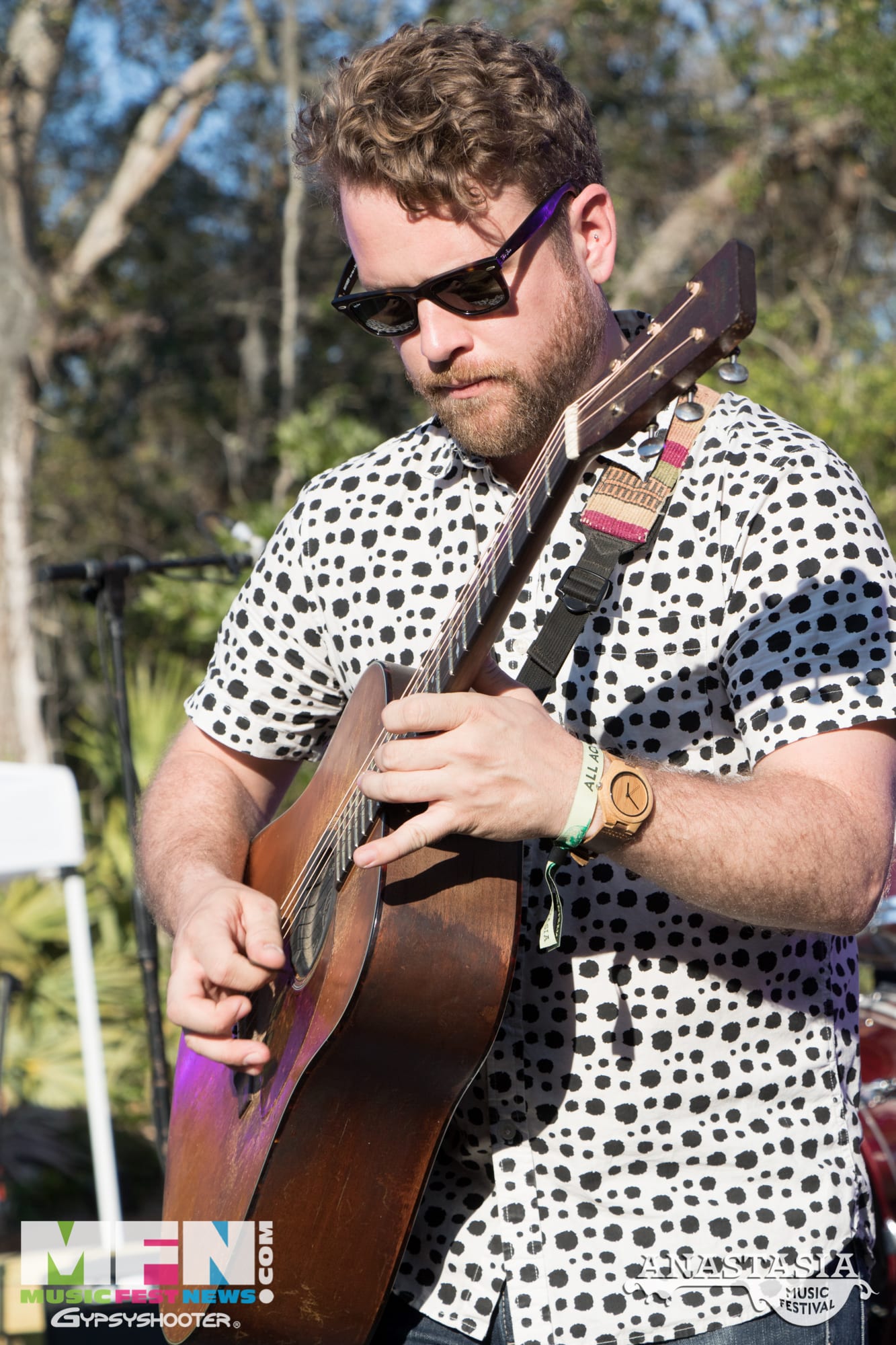
MFN: So what’s next for The Jon Stickley Trio? Did I hear right that you’re thinking about a European tour?
Jon: Oh, gosh. We’d love to. We’ve still got a lot left this year. We’ve got Strings and Sol down in Mexico. That’ll be a first for us. That’s our first international gig. And then we’re doing Winnipeg Folk Fest next spring, and then of course, the big New Year’s Eve hometown celebration in Asheville. And then maybe it’s a good time for a live record next.
The live session is something that’s become totally its own, and there are some things that we only do live that we could get down on record. And then we could move forward into some new album territory. I hate to even say that because of how much work it takes.
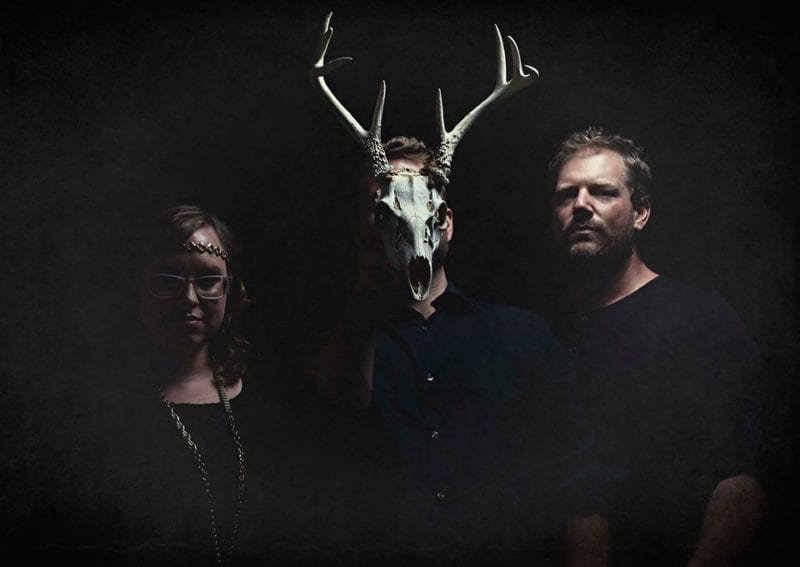
MFN: Does that happen on the road or does that typically happen when you go home?
Patrick: We write it when we’re home, but we shape it on the road.
Jon: We don’t really rehearse on the road. We’re so busy out there.
Patrick: Although the last record, we did come up with some of the tunes while we were staying here in Florida. And we did actually come up with some new stuff when we were in New Mexico.
Lyndsay: We were really looking forward to recording. We were sort of planning the last album on the road.
Jon:: The coolest thing about the last album is that we did have enough forethought to get the songs together so that we could perform those songs many times before going into the studio to cut the final studio version. Like I said, our music always grows. So, those songs got to mature a little bit before we went in and locked them in for the album, which was good.
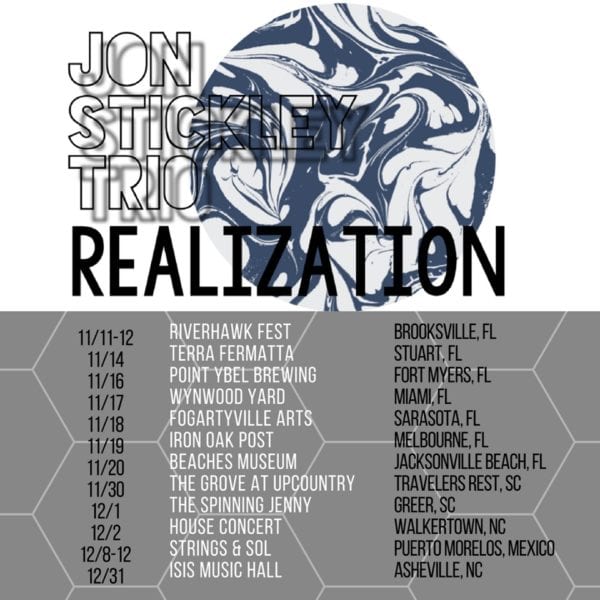
If The Jon Stickley Trio happens to come through your town, run, don’t walk, to see them. This band is destined for big things and even bigger venues. Lucky for us, they’re just getting started.
